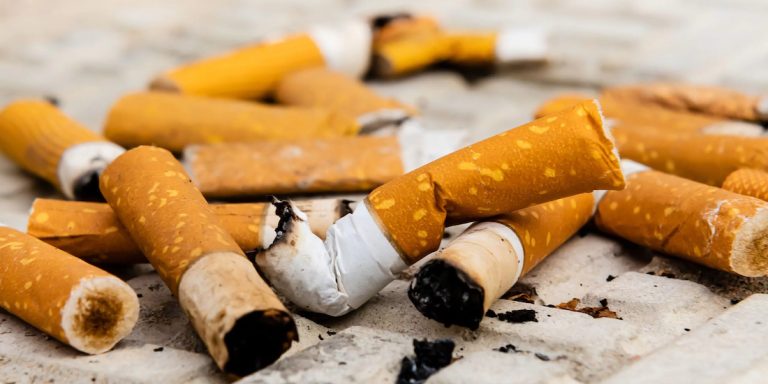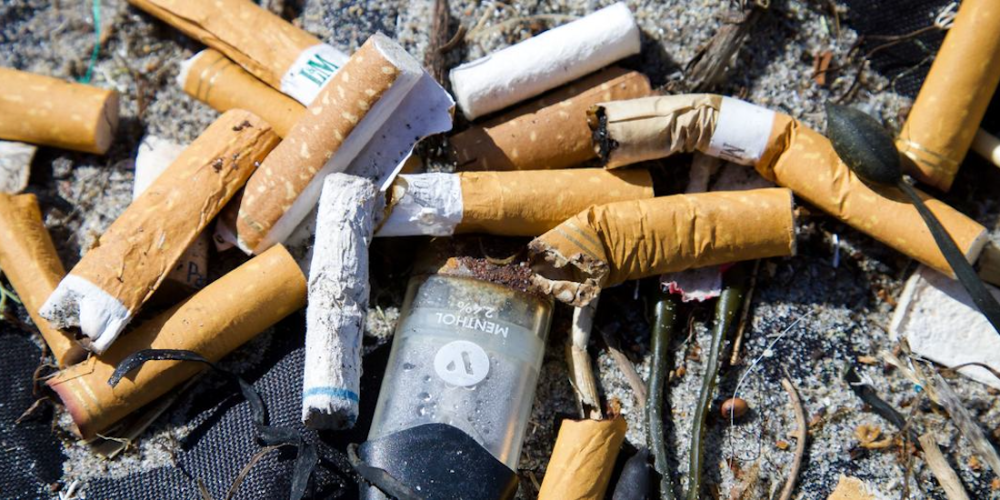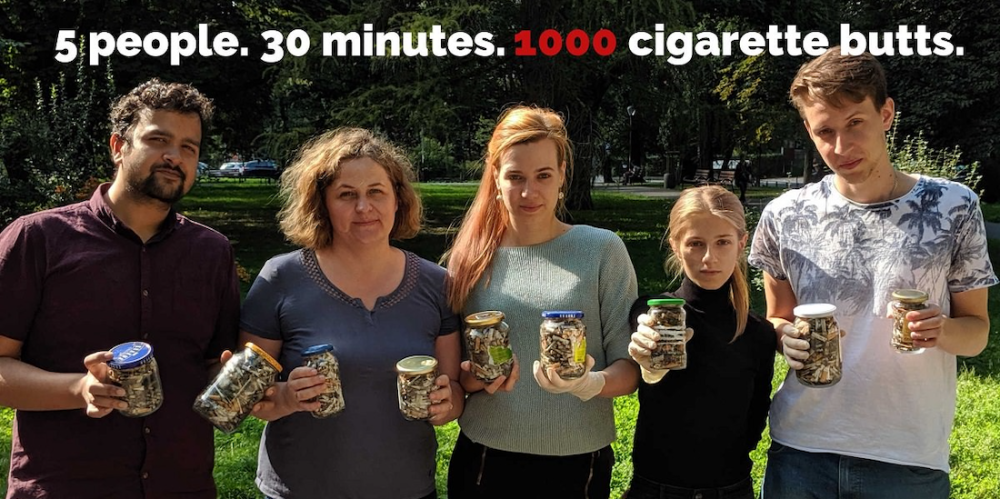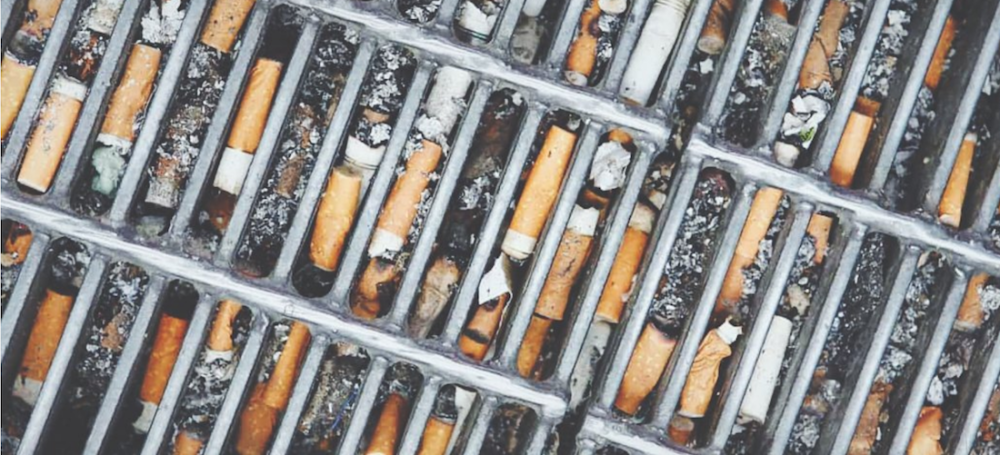
Approximately 10 million cigarettes are purchased every minute, worldwide. 4.5 trillion cigarette butts are littered annually
New York, N.Y. – Cigarette butts, often dismissed as minor litter, pose a severe environmental threat, polluting ecosystems and burdening communities with substantial cleanup costs. According to a recent report from Heal The Planet, cigarette butts are the most collected item in global beach cleanups, with an estimated 4.5 trillion littered annually, wreaking havoc on streets, rivers, and oceans worldwide.
Trillions of Toxic Butts Pollute the Planet
Heal The Planet highlights the staggering scale of the issue: “Approximately 10 million cigarettes are purchased every minute, worldwide. 4.5 trillion cigarette butts are littered annually.” These butts, made of cellulose acetate, a non-biodegradable plastic, contain toxic chemicals like arsenic, lead, and nicotine, which leach into soil and waterways, threatening wildlife and human health. A single butt can contaminate over seven liters of water, according to posts on X, underscoring their potency as pollutants.
The misconception that cigarette butts are harmless exacerbates the problem. Heal The Planet notes, “The Keep America Beautiful program surveyed Americans and found that 77% didn’t think cigarette butts were litter.” This mindset fuels casual disposal, with trillions of butts discarded into the environment, where they can take up to eight years to break down under certain conditions. Even then, they fragment into microplastics, further polluting ecosystems.
Economic and Environmental Toll
The financial burden of cigarette butt cleanup is immense. Heal The Planet reports, “Cities spend between 3 and 16 million dollars annually on cigarette cleanup.” Globally, the BMJ estimates the cost of managing plastic pollution from cigarette butts and packaging at $26 billion yearly, or $186 billion over a decade, adjusted for inflation. These costs stem from labor-intensive cleanup efforts and the long-term environmental damage caused by toxic leachates.
Marine life suffers significantly, as cigarette butts are ingested by birds, turtles, and fish, leading to suffocation, poisoning, or starvation. A 2022 study cited by Earth Day found microplastics from butts in human tissues, raising concerns about health impacts, particularly in low-income communities with higher smoking rates and inadequate waste management. Heal The Planet emphasizes, “Cigarette butts are toxic waste; containing plastics, tar and arsenic.”

Community Action to Combat Litter
Heal The Planet advocates for grassroots solutions: “If you see cigarette litter on the ground, do your part by picking it up.” Community cleanups can make a tangible difference, with studies showing that for every cigarette receptacle added, litter drops by 9%.
Hosting a cigarette butt cleanup event is another suggested action, rallying communities to address this pervasive issue. Organizations like TerraCycle offer recycling programs, converting cigarette butts into products like ashtrays and shipping pallets, providing a sustainable disposal option.
Smokers are encouraged to use designated disposal units or carry portable “pocket ashtrays” to prevent littering. Heal The Planet stresses, “Shifting our mindset on the proper disposal of cigarette butts is necessary for the health of our environment.” These small acts align with their broader mission: “Small Acts create Huge Impact.”

Broader Impacts of Tobacco
The environmental damage from cigarettes extends beyond butts. The World Health Organization reports that tobacco farming contributes to 5% of global deforestation, with 200,000 hectares of wood biomass lost annually. This compounds the ecological footprint of the tobacco industry, which Heal The Planet identifies as a significant driver of environmental degradation. Supporting initiatives to reduce tobacco use, such as anti-smoking campaigns, can mitigate these impacts while improving public health.
Heal The Planet’s report is part of their “100+ Ways to Heal The Planet” series, which educates on sustainable choices. Their approach emphasizes individual responsibility:
“Our mission is to educate and empower the next generation of children and adults about the power of our daily choices and the huge impact these choices have on the health and wellbeing of both ourselves, and our planet.” By addressing cigarette butt litter, they aim to inspire collective action for a healthier planet.


Individuals can make a difference by participating in or organizing local cleanup events, advocating for more cigarette waste receptacles, and supporting tobacco control initiatives. Smokers should adopt responsible disposal habits, such as using portable ashtrays, to prevent butts from entering the environment. Visit Heal The Planet’s shop at HealThePlanetShop.com to support their mission, where 100% of profits fund their non-profit efforts to promote sustainability.
